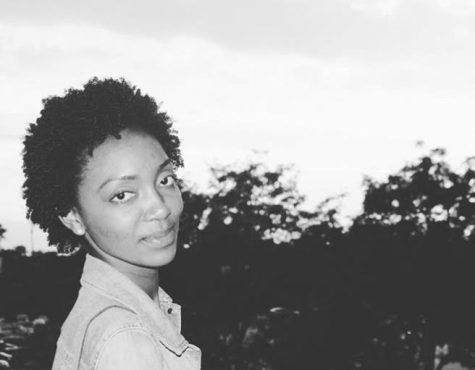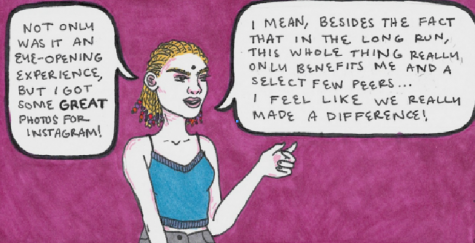Hip-hop artists should embrace the divine feminine

December 15, 2017
A fellow hip-hop fan suggests that I listen to a new song. Prepared to be hit with every sexist slur that has been normalized within this genre, I guard myself and press play. Two minutes into the song, I realize that not only have I been spared the abuse of such lyrics but the artist even refers to God as a woman, manifesting a hope that hip-hop is changing its narrative about women to a more sacred one.
We all know that hip-hop has a serious problem with misogyny. If it wasn’t for the genre, we’d still be using the term, “hoe” exclusively when gardening. Rappers have impacted the way we talk about women. Needless to say, there is a historically demeaning picture that has been painted of women as groupies or girlfriends by the brush of hip-hop lyrics.
However, hip-hop lyrics are changing to be less brutally sexist. New school hip-hop is promoting a trend that defies the boxes women are placed in and even compares us to divine beings. It doesn’t sound like the hip-hop we’re used to — and that’s the point.
Rappers like Kendrick Lamar, Mac Miller and Chance the Rapper are using their platform to reduce the degradation of women by comparing them to God.
In Chance the Rapper’s, Grown Ass Kids, Alex Wiley says, “Wonder if the Lord’s on my side, let me ask Him, or ask Her.” In this song, Wiley is humbling himself for guidance from who he believes is a female God. Society isn’t used to a woman calling the shots, especially at the position of the Most High.
However, this isn’t the first time a recording artist referenced women as God. Both Cee Lo Green’s, God is a Woman and Beyonce’s Don’t Hurt Yourself challenged society’s perception of a woman’s “place” in the world. As legendary these songs may be, hip-hop needs more of these kind of songs.
Women have been stuck in an abusive relationship with hip-hop. Because of its history of violently degrading women, female fans must always ask themselves “where do I draw the line as a fan and feminist?”
Nevertheless, the trend elevating women to a God status marks a possible end to the bitterness of our bittersweet relationship. Hip-hop fans, like myself, can now see themselves portrayed in a such a way that we’re considered blessed deities. Not only are we more than just “thots” and “trap queens,” but we are as supreme as the creator, Herself.
Let’s hope this trend doesn’t fade anytime soon.














